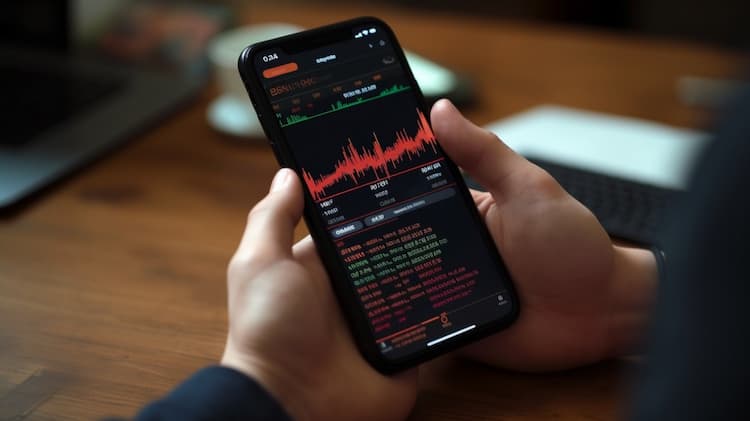IXJ ISSUER
The iShares Global Healthcare ETF (IXJ) is managed by BlackRock Fund Advisors (BFA). This ETF seeks to track the performance of the S&P Global 1200 Health Care Index, which comprises companies in the healthcare sector deemed important to global markets by S&P Dow Jones Indices LLC (SPDJI), a subsidiary of S&P Global, Inc. As of March 31, 2023, the index included securities from various countries, and the ETF utilizes an indexing approach to achieve its investment objective, aiming to keep portfolio turnover low. The fund generally invests at least 80% of its assets in component securities of the Underlying Index and may lend securities representing up to one-third of its total assets, with a concentration policy that mirrors the Underlying Index's industry concentration.
IXJ DIVIDEND
The iShares Global Healthcare ETF (IXJ) follows a passive management investment approach to track the total return performance of the Solactive US Large & Mid Cap Index, which comprises around 100 large- and mid-capitalization U.S.-listed stocks with high forecasted systematic risk (beta). While the primary focus of this ETF is not on dividends, its dividend distribution is influenced by the individual dividend policies and performances of the constituent companies within the index. These dividend distributions typically occur on a quarterly basis. It's worth noting that IXJ's investment strategy aims for a high correlation with the index's performance, and its sector concentration may mirror that of the index, making it an option for investors seeking exposure to the healthcare sector with potential dividend returns.
IXJ TRACKING
The iShares Global Healthcare ETF, with the ticker symbol IXJ, is designed to track the performance of the S&P Global 1200 Health Care Index™. This index is curated by S&P Dow Jones Indices LLC (SPDJI), a subsidiary of S&P Global, Inc., and it represents companies in the healthcare sector deemed vital to global markets. Comprising large-capitalization stocks from major global markets, as determined by SPDJI, the index consists of healthcare companies from various countries, including Australia, Belgium, Brazil, China, Denmark, France, Germany, Japan, the Netherlands, South Korea, Spain, Sweden, Switzerland, the United Kingdom (the U.K.), and the United States. To achieve its investment objective, IXJ utilizes an indexing approach. Rather than attempting to outperform the index, the fund aims to closely replicate its performance. This strategy helps minimize some of the risks associated with active management while focusing on cost efficiency and tax optimization. IXJ employs a representative sampling indexing strategy, selecting a subset of securities that collectively mirror the characteristics of the underlying index. While the fund primarily invests in component securities of its underlying index, it may also allocate up to 20% of its assets to certain futures, options, swap contracts, cash equivalents, and securities not included in the index. Furthermore, IXJ may lend securities, up to one-third of its total assets, including the value of any collateral received. It's important to note that SPDJI, an independent entity, determines the composition and weightings of the securities in the Underlying Index, which IXJ aims to track closely. Additionally, the fund follows an industry concentration policy, aligning its industry holdings to the concentration levels of the underlying index, with exceptions made for U.S. government securities and repurchase agreements collateralized by U.S. government securities, which are not considered part of any industry concentration.
IXJ CORRELATION
The correlation aspect of the iShares Global Healthcare ETF (IXJ) plays a vital role in understanding its performance in relation to the global healthcare sector. As IXJ seeks to track the S&P Global 1200 Health Care Index, it maintains a strong correlation with companies in the healthcare sector worldwide. This correlation makes IXJ a valuable tool for investors looking to gain exposure to the healthcare industry on a global scale or for those seeking diversification within this sector. To analyze IXJ's correlations with other assets or sectors, investors can utilize ETF Insider's web app, which provides comprehensive data and visualization tools to uncover valuable insights into this ETF's behavior and potential overlaps with other investments.
IXJ SECTOR
The iShares Global Healthcare ETF (IXJ) is primarily invested in the healthcare sector, offering exposure to a diverse range of healthcare-related companies worldwide. The ETF tracks the S&P Global 1200 Health Care IndexTM, which comprises companies that are significant players in the healthcare industry, contributing to global markets. As of its latest update in March 2023, the index includes companies from various countries such as the United States, Japan, Switzerland, and more. IXJ aims to replicate the performance of this index by adopting an indexing approach and representative sampling strategy, providing investors with access to the healthcare sector's growth potential while maintaining lower costs and potentially reducing risks associated with active management. The ETF may also lend securities, and its industry concentration policy closely aligns with the index's sector concentration.
IXJ EXPOSURE
The exposure characteristic of the iShares Global Healthcare ETF (IXJ) is centered around the healthcare sector, as it seeks to track the S&P Global 1200 Health Care IndexTM. This ETF provides investors with broad exposure to companies that play a pivotal role in the healthcare industry, both in the United States and globally. With holdings spanning countries such as Australia, Belgium, Brazil, China, and more, IXJ offers a comprehensive view of the healthcare sector's performance across different regions and markets.For in-depth insights into IXJ's exposure, including sector breakdowns, correlations, and other relevant data, you can utilize our ETF Insider web app. This tool offers a simple visualization that helps investors uncover valuable information about this ETF and its holdings, aiding in better-informed investment decisions.



